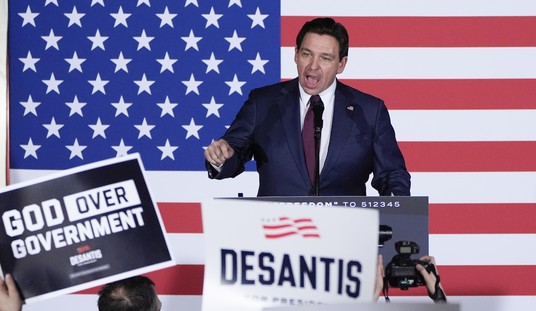So much for loyalty, eh? CBS News reports that Walgreens took a beating today from investors, losing 12% of their share price after making two announcements. One was an acquisition of the remaining stake in a British pharmacy chain, which may have played a part in the drop. The other announcement was that Walgreens would not use an inversion strategy to relocate its headquarters outside the US to protect itself against high tax bills.
Which led to the exodus? CBS thinks it’s more the latter than the former:
Walgreen had been pondering whether to take advantage of the strategy, which would have made it one of the best known consumer brands to shift its headquarters overseas in order to pursue lower taxes. The move would have cost Americans $4 billion in lost tax revenue over five years, according to advocacy group Americans for Tax Fairness.
Tax inversions are orchestrated when an American company merges with a foreign firm and shifts its headquarters overseas, allowing them to bypass some U.S. taxes. It’s become a hot-button topic on Wall Street and Capitol Hill, given the fact that the technique may result in a loss of $20 billion in taxes over the next decade, according to a study from the Joint Committee on Taxation.
But Walgreen’s decision to stay put in the U.S. reveals a split between the expectations of American consumers, some of whom view tax inversions as unpatriotic, versus shareholders, who want companies to act in their best financial interest.
Shares of Walgreen slipped nearly 12 percent in mid-morning trading on Wednesday, after the company disclosed its decision and plans to buy the remaining stake in the British pharmacy chain Alliance Boots that it doesn’t already own. It should be noted that a company’s stock sometimes declines after announcing an acquisition.
“The company concluded it was not in the best long-term interest of our shareholders to attempt to re-domicile outside the U.S.,” Walgreen chief executive Greg Wasson said in the statement.
It could be some of both, but the decision to pay higher taxes had to factor into this decision. The political combat over inversion and Barack Obama’s demand for “economic patriotism” has some corporate boards worried about consumer reaction and activists, but apparently not so worried as to discard the option as Walgreens did. The Washington Post reported today that American tax policies has “a wave of corporations” preparing to adopt inversion as a way to minimize their tax liabilities over the next few months:
So far this year, about a dozen U.S. companies — including such well-known brands as Medtronic medical devices and Chiquita bananas — have merged with foreign firms and shifted their headquarters offshore to avoid U.S. taxes, analysts say.
Dozens of additional deals are in the works, according to administration and congressional officials, and other companies are quietly contemplating the move. Last month, CVS Caremark chief executive Larry Merlo met with Sen. Charles E. Schumer (D-N.Y.) and urged him to act to stop the rash of expatriations. Otherwise, Schumer said that Merlo warned him, CVS “might be forced to do it, too,” to duck a total tax bill expected this year to approach 40 percent.
“There’s a huge number coming,” Schumer said in an interview. “We hear there are going to be several big announcements in August.”
The maneuver, known as tax “inversion,” has been around for decades, but the pace has accelerated in recent years as U.S. firms have expanded overseas and other nations have adopted lower tax rates. At the same time, company executives have grown increasingly frustrated with Washington, where political gridlock has stymied efforts to reduce a 35 percent federal corporate tax rate that is higher than in any other advanced economy.
If we know what the problem is, why don’t we work on solving it? That’s too hard, it seems, so Obama’s looking for executive actions he can take to make leaving the US more difficult, if not impossible:
The Obama administration is weighing plans to circumvent Congress and act on its own to curtail tax benefits for United States companies that relocate overseas to lower their tax bills, seeking to stanch a recent wave of so-called corporate inversions, Treasury Secretary Jacob J. Lew said on Tuesday.
Treasury Department officials are rushing to assemble an array of options that would essentially wipe out the economic incentive for the deals, Mr. Lew said. No final decision has been made.
“The question is, Can we do enough that it will materially change the economics of inversions so that companies will make different decisions?” Mr. Lew said in an interview. “The things we are looking at look to me like they could very materially change the economics of inversions.”
What kind of actions are they considering? Raising taxes even further, of course:
His article referred to a section of the tax code that allows the Treasury secretary to issue rules for determining whether a given financial instrument should be treated as debt or equity. The idea would be to limit the degree to which a foreign parent company could load up a United States subsidiary with debt, which can be deducted for tax purposes, and require that any excess be designated as equity, which is not eligible for deductions.
Mr. Shay also proposed other administrative moves to reduce the use of offshore earnings without paying United States tax.
This is what’s known as throwing gasoline on a fire. It only works if the end goal is to do even more damage than the current crisis is causing. The reason American corporations are looking for inversion opportunities is because the US corporate tax code is so uncompetitive in the first place. Making the tax burden greater doesn’t improve the situation; it only provides more incentive to leave, and certainly much less incentive to invest hoarded cash in the US economy. It might temporarily slow down inversions, but it will chase investment capital even further outside of the US or into shelters of one kind or another.
Why not just fix the problem? The White House doesn’t want to work with Congress, that’s why, and would rather use the issue to troll voters with nonsense tropes like “economic patriotism” that appeal to the worst impulses. Patriotism is the last refuge of the scoundrel, Dr. Johnson once wrote, and appeals to “economic patriotism” are the last refuge of the incompetent and impotent scoundrels.








Join the conversation as a VIP Member